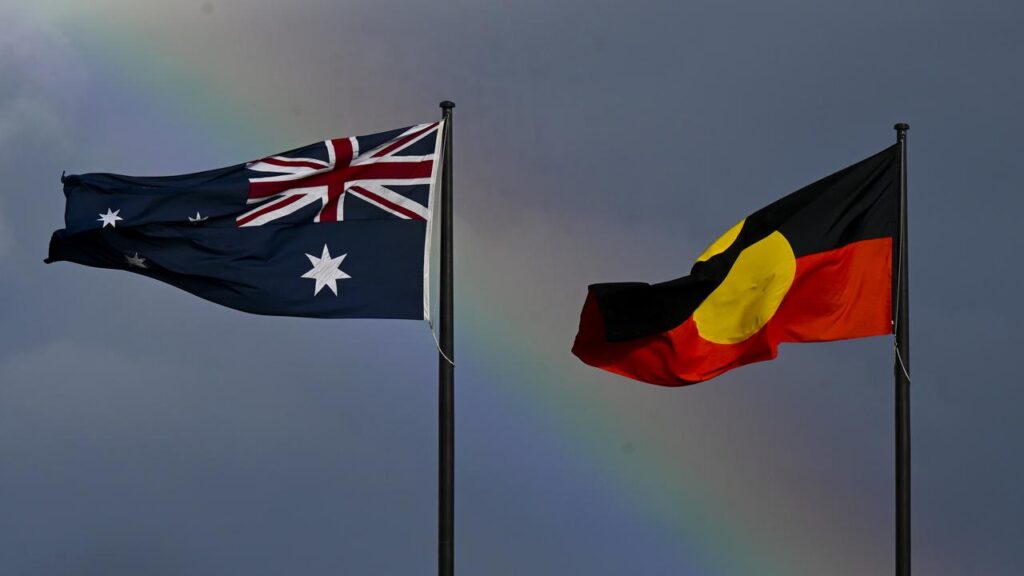‘Misinformation, lies’: Australian-first treaty warning
Callum Godde, Allanah Sciberras and Rachael Ward |

Critics and detractors of an Australian-first statewide treaty agreement are being told they have nothing to fear.
Under a statewide treaty bill introduced to Victorian parliament on Tuesday, the state’s Indigenous representative body would be made permanent.
It would be granted decision-making powers on initiatives and services relevant to Aboriginal Victorians and must be consulted on related laws and policies, acting as a voice to parliament.
The in-principle agreement is a nationwide first and follows 10 months of negotiations between the government and First Peoples’ Assembly of Victoria.
Premier Jacinta Allan said current practices and systems were not working to improve the lives of Aboriginal people, pointing to stagnating and worsening Closing the Gap outcomes.
None of the changes are about “taking anything away from anyone”, she insists.
“It’s simply about improving services, improving the lives of Aboriginal Victorians,” Ms Allan told reporters.
The treaty framework is expected to cost just over $300 million from 2020 to 2028.
Australia is the only Commonwealth nation doesn’t have a treaty with its Indigenous people, assembly co-chair Rueben Berg said.

“This will reset the relationship between First Peoples and government,” he said.
His co-chair Ngarra Murray said the state stood at the beginning of a new era, a turning point in the nation’s history.
Under the changes, the statutory body could put forward traditional names for “specified geographical features” and push for ones deemed “offensive” to be renamed, if accompanied by evidence of why it was hurtful.
National and state parks, waterways and waterfalls on state-controlled land were within the scope but other geographic features could be included when agreed with the state.
“It’s not carte blanche,” Mr Berg said.
Truth-telling would be embedded in Victoria’s public school curriculum up to year 10, drawing on the Yoorrook Justice Commission’s official public record of Aboriginal experiences since colonisation.
The proposed curriculum change was about future generations understanding the history of the state so it can move forward, the premier said.
A future apology to the state’s first inhabitants in parliament was agreed to, with the wording to be settled down the track.

Yoorrook’s final reports called for redress for post-colonisation pain and suffering in the form of restitution of traditional land, monetary compensation, tax relief or other financial benefits.
Treaty would ensure the voices of people who spoke to the now-concluded truth-telling inquiry were acted on, its former commissioner Travis Lovett said.
“We have seen too many reports in the past gather dust on shelves, with little change for our people,” he told AAP.
“This time it will be different.”
The treaty does not set out a redress scheme, with Mr Berg encouraging opponents to read the 34-page document.
“People don’t have to fear or worry about this anymore. It’s out there,” he said.
A majority of MPs in both houses of state parliament must back the legislation for the treaty’s terms to become a reality.

The Victorian opposition withdrew its support for a statewide treaty in January 2024 following the failed national referendum to constitutionally enshrine a voice to federal parliament.
Unlike the doomed federal voice to parliament, the state body can be more easily unwound because it is not constitutionally enshrined.
The premier cautioned treaty detractors not to resort to the same “deliberate misinformation” and “outright lies” that were peddled during the 2023 referendum.
Liberal Leader Brad Battin continued to lean on the referendum result and cost concerns to justify the coalition’s staunch opposition.
“Under a government I lead, I won’t need a treaty to consult with those (Aboriginal) communities,” he said.
13YARN 13 92 76
Lifeline 13 11 14
AAP